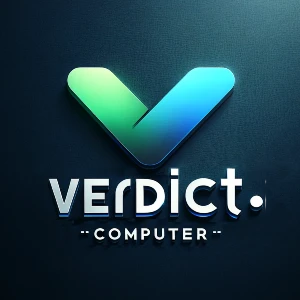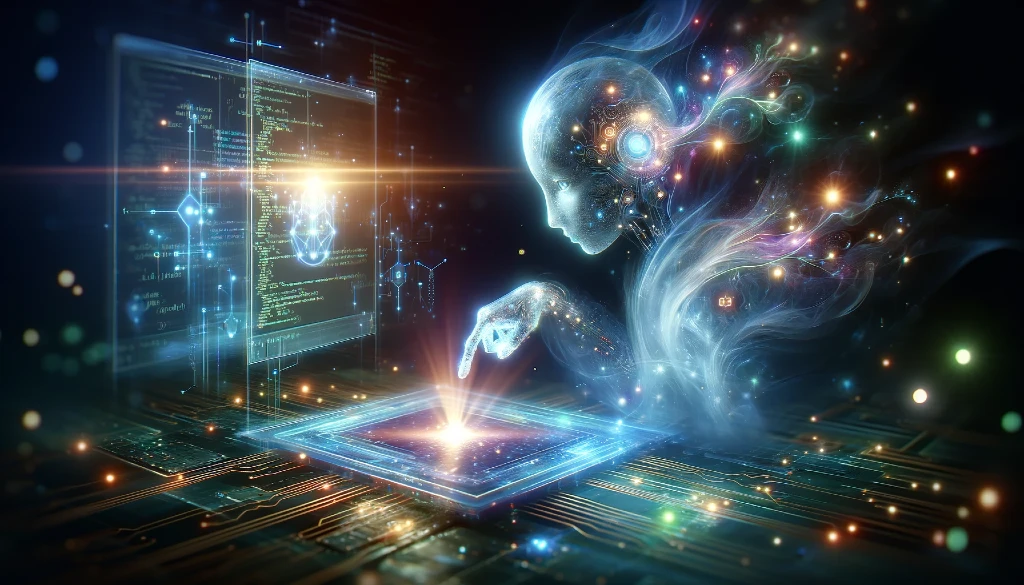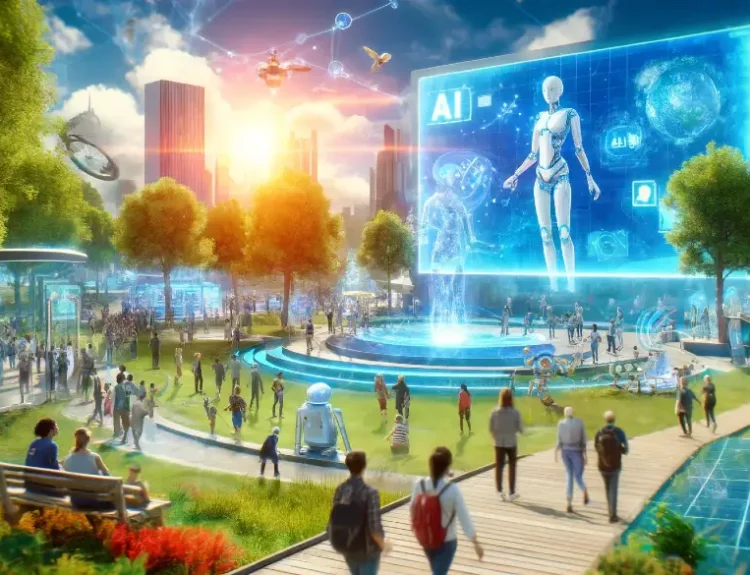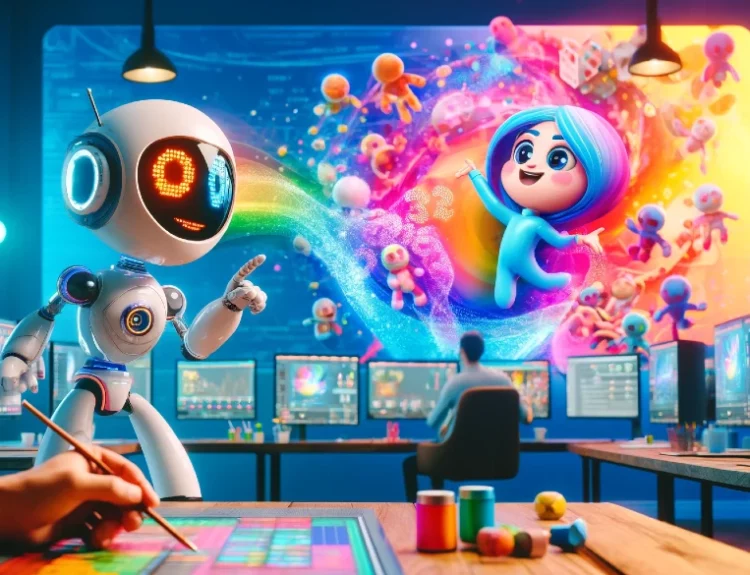Introduction
In the fast-paced world of technology, innovation is the currency of progress. Yet, amidst the constant flux of advancements, one question looms large: Can AI write computer programs? Imagine a world where the lines between programmer and machine blur, where algorithms craft intricate code with the precision of a seasoned developer. This is the frontier of AI in programming—an intersection of human ingenuity and machine intelligence that promises to revolutionize the way we create software.
Welcome to “Unleashing Innovation: Can AI Write Computer Programs?” In this blog, we embark on a journey into the heart of artificial intelligence and its transformative potential in the realm of programming. From automated coding to machine-generated code, we delve deep into the capabilities of AI development tools and explore the future of programming automation. Prepare to be captivated as we unravel the mysteries of AI-assisted software development and envision a future where innovation knows no bounds. The code of tomorrow awaits—let’s unlock its secrets together.
The Evolution of AI in Programming
Since its inception, artificial intelligence (AI) has played a significant role in shaping the landscape of programming. From early attempts at rule-based systems to the sophisticated machine learning algorithms of today, the evolution of AI in programming has been nothing short of revolutionary.
Historically, AI was primarily used for tasks such as problem-solving and decision-making, with limited applications in software development. However, as AI technologies advanced, programmers began to explore its potential to automate coding tasks and enhance software engineering processes.
Today, AI is at the forefront of programming innovation, with tools and techniques that empower developers to write better code faster than ever before. From intelligent code completion to automated testing and debugging, AI has become an indispensable ally in the programmer’s toolkit, driving efficiency and productivity to new heights.
AI Development Tools: Empowering Programmers
AI development tools represent a paradigm shift in software development, empowering programmers with intelligent solutions to streamline their workflows and enhance productivity. These tools leverage AI algorithms to automate repetitive tasks, provide insights into code quality, and assist developers in writing cleaner, more efficient code.
One of the key benefits of AI development tools is their ability to augment human creativity and problem-solving skills. By analyzing vast amounts of code and identifying patterns and best practices, these tools can offer suggestions and recommendations to help programmers make informed decisions and write better code.
From code generation and optimization to predictive analytics and project management, AI development tools are transforming every aspect of the software development lifecycle. As the demand for faster, more efficient software grows, these tools will continue to play a crucial role in driving innovation and accelerating the pace of software delivery.
The Rise of Automated Coding
Automated coding, powered by AI, is revolutionizing the way software is developed, tested, and deployed. With the ability to generate code based on high-level specifications and requirements, automated coding tools are enabling developers to build complex systems faster and more accurately than ever before.
One of the key advantages of automated coding is its ability to reduce human error and increase code reliability. By leveraging machine learning algorithms to analyze existing codebases and identify common patterns and structures, automated coding tools can generate code that adheres to industry best practices and coding standards.
Furthermore, automated coding streamlines the development process, allowing teams to focus on higher-level design and problem-solving tasks. By automating routine coding tasks such as boilerplate code generation and refactoring, developers can spend more time on creative problem-solving and innovation, driving overall project success.
As the demand for software continues to grow, automated coding will play an increasingly important role in accelerating software development and driving innovation. By harnessing the power of AI, developers can build better software faster, revolutionizing the way we create and deploy software in the digital age.
Programming Automation with AI
Programming automation with AI represents a paradigm shift in software development, offering unprecedented opportunities to streamline workflows, increase productivity, and enhance code quality. By leveraging AI algorithms and machine learning techniques, developers can automate repetitive tasks, optimize performance, and accelerate the software development lifecycle.
One of the key benefits of programming automation with AI is its ability to improve code efficiency and reliability. By automating tasks such as code generation, testing, and debugging, developers can reduce human error and ensure that their code meets industry standards and best practices. Additionally, AI-powered tools can analyze vast amounts of code and provide insights and recommendations to help developers write cleaner, more efficient code.
Furthermore, programming automation with AI enables developers to focus on higher-level design and problem-solving tasks. By automating routine coding tasks, developers can allocate more time and resources to creative innovation and driving business value. This not only increases productivity but also fosters a culture of continuous improvement and innovation within development teams.
As the demand for software continues to grow and deadlines become increasingly tight, programming automation with AI will play an increasingly important role in driving efficiency and accelerating software delivery. By embracing AI-powered tools and techniques, developers can build better software faster, revolutionizing the way we develop and deploy software in the digital age.
Coding with AI: Challenges and Opportunities
While coding with AI offers significant opportunities for innovation and productivity, it also presents several challenges that developers must navigate. One of the key challenges is ensuring the reliability and accuracy of AI-generated code. While AI algorithms can automate many coding tasks, they may lack the contextual understanding and creativity of human developers, leading to potential errors and inefficiencies.
Additionally, coding with AI raises ethical considerations surrounding bias and fairness in algorithmic decision-making. AI algorithms are trained on historical data, which may reflect biases present in society. As a result, AI-generated code may perpetuate or amplify existing biases, leading to unintended consequences and ethical dilemmas.
Despite these challenges, coding with AI also presents numerous opportunities for developers to enhance their skills and capabilities. By leveraging AI-powered tools and techniques, developers can automate repetitive tasks, gain insights into code quality, and accelerate the software development lifecycle. Additionally, coding with AI encourages collaboration and knowledge sharing within development teams, fostering a culture of continuous learning and improvement.
Ultimately, the key to successful coding with AI lies in striking a balance between automation and human expertise. By leveraging AI to augment human creativity and problem-solving skills, developers can unlock new levels of innovation and efficiency, driving the future of programming forward.
The Future of Programming with AI
The future of programming with AI is filled with promise and potential, as developers continue to explore new ways to leverage AI to enhance productivity, efficiency, and innovation. From automated code generation to intelligent code analysis and optimization, AI-powered tools and techniques are reshaping the way software is developed, tested, and deployed.
Looking ahead, we can expect to see continued advancements in AI-powered programming tools and techniques, as developers harness the power of machine learning and natural language processing to automate even more aspects of the software development lifecycle. Additionally, we can anticipate the emergence of new paradigms and methodologies for programming with AI, as developers embrace AI-driven approaches to solve increasingly complex problems.
Furthermore, the future of programming with AI holds the promise of greater collaboration and knowledge sharing within development teams, as developers leverage AI to augment their skills and capabilities. By embracing AI-powered tools and techniques, developers can unlock new levels of innovation and creativity, driving the future of programming forward in the digital age.
Conclusion
In conclusion, the question of whether AI can write computer programs is not merely a theoretical inquiry but a practical consideration with profound implications for the future of software development. As we’ve explored the evolution of AI in programming, the rise of automated coding, and the challenges and opportunities associated with coding with AI, one thing becomes clear: AI has the potential to revolutionize the way we write code, streamline workflows, and drive innovation in the software industry.
However, the future of programming with AI is not without its challenges, from ensuring the reliability and accuracy of AI-generated code to addressing ethical considerations surrounding bias and fairness. Nevertheless, by embracing AI-powered tools and techniques, developers can unlock new levels of productivity, efficiency, and creativity, driving the future of programming forward in the digital age.
Are you ready to explore the exciting frontier of AI in programming? Check out our blogs on Ethical considerations in AI and The rise of LLMs, where we delve deeper into the ethical implications of AI technology and the emergence of large language models in the field of natural language processing. Whether you’re a seasoned developer, an AI enthusiast, or simply curious about the future of technology, our blogs offer valuable insights and resources to help you stay informed and empowered in the age of AI.
Additionally, don’t forget to visit our platform at Verdict. We’re more than just a source of information—we’re your partners in shaping the future of AI. Join us on our journey to develop AI that reflects our diversity, learns from our experiences, and expands with our collective knowledge. Visit our website to learn more and stay updated on the latest developments in AI and technology. The future is waiting—are you ready to be a part of it?










